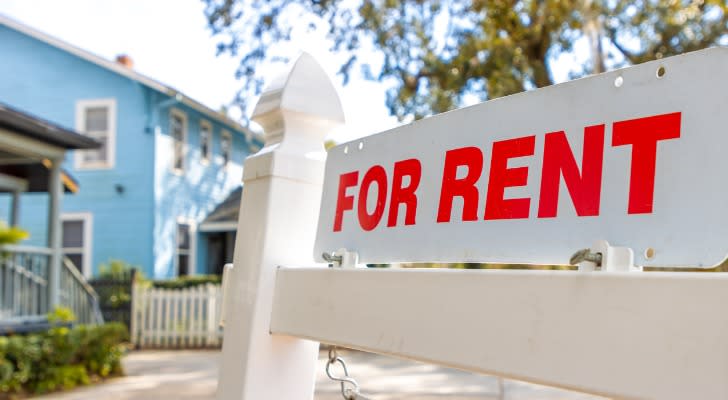I am 50 and my husband is 57. We have paid off all debt and have $1 million in our 401(k) and IRA. We also own $1 million worth of rental properties that bring us a net profit of $5,000 monthly. We hope to keep the rental properties for another 15 years for income. We have $200,000 in savings that earns 4.75% interest and another $250,000 in other investments that can earn about 10%.
Our daily life is minimal, simple and basic, but we like to save money for travel. We estimate the cost to be between $30,000 and $40,000 per year. Can we retire in five years or should we continue working? Should we keep the rental properties longer or invest in First Nation Realty Partners (FNRP) when we retire?
– Elizabeth
It sounds like you’re probably in a pretty good position for retirement, but you need to compare your assets to your income replacement needs to know if they’re sufficient. It is also very important to think about your desired lifestyle and risk tolerance. These considerations can help you determine how sustainable your retirement income will be. What may work for someone else may not be best for you, even if the math is exactly the same. (And if you need more help creating a retirement plan, consider talking to a financial advisor.)
Do you want to manage rental properties when you retire?


This is a simple question that I recommend you ask, regardless of the income you expect to receive from it. Managing rental properties isn’t as passive as collecting a distribution check from a 401(k) or IRA. Some people find that they prefer not to manage properties after retirement. For others, the hassle is well worth it.
It sounds like you and your husband are pretty sure it’s for you, so it might make sense to hold on to the property. I would base that decision primarily on how it fits into your desired retirement lifestyle.
If you decide to sell those properties and reinvest the proceeds, I don’t think you should limit yourself to one option, be it FNRP or something else. Instead, consider how your total allocation supports your income needs and protects your principal. (A financial advisor can help you make important financial decisions, such as buying or selling a property in retirement.)
Manage your investments to increase your profits and prepare for withdrawals
In general, it’s best not to get more aggressive as you get closer to retirement. Doing so exposes you to a poor range of returns and could jeopardize your retirement security. Of course, “more aggressive” is a relative term and I’m not sure how aggressively you are currently investing. It’s also possible that you’re investing too conservatively, so your portfolio won’t be able to sustain distributions long enough. You have to find a balance between long-term profits and short-term benefits.
Investing somewhere between 50% and 70% of your portfolio in stocks is usually a good choice for most retirees, but you should also consider your other sources of income and your attitude toward investment risk. It’s not just a simple rule of thumb, but rather something much more personal. (And if you need help finding the right asset allocation in retirement, consider consulting a financial advisor.)
So, can you retire within 5 years?


In five years, your husband will be 62 and you will be 55. Those ages matter to a retiree for a few reasons.
Your husband has reached the minimum age to start collecting Social Security. It may or may not be the best time for him to claim Social Security, but I would encourage you to think about that decision and not make a claim just because he is retired and eligible. It often makes sense to delay even after you’re technically retired, especially if you don’t urgently need the payments yet.
Since you won’t be at least 59.5 years old in five years, if you withdraw from retirement accounts in your name, you could face a 10% early withdrawal penalty. An important caveat to this is the Rule of 55. If your 401(k) plan allows it, you may be able to avoid the penalty if you withdraw directly from your 401(k) after leaving work. (A financial advisor can help you create a tax-efficient plan for withdrawing your retirement savings.)
In short
Determine a desired retirement budget based on your lifestyle choices. Compare that to your retirement income sources to determine if this is sustainable and within an acceptable risk level. Then determine how your options fit your lifestyle preferences.
Tips for finding a financial advisor who can help
-
If you don’t already have a financial advisor, finding one doesn’t have to be difficult. SmartAsset’s free tool matches you with up to three vetted financial advisors serving your area, and you can have free introductory calls with your advisors to decide which one you think is right for you. If you’re ready to find an advisor who can help you achieve your financial goals, get started now.
-
Consider a few advisors before choosing one. It’s important to make sure you find someone you trust to manage your money. As you consider your options, these are the questions you should ask an advisor to ensure you make the right choice.
-
Have an emergency fund on hand in case you encounter unexpected expenses. An emergency fund should be liquid – in an account that is not at risk of significant fluctuations like the stock market. The trade-off is that the value of liquid cash can be eroded by inflation. But with a high-interest account, you can earn compound interest. Compare savings accounts from these banks.
Brandon Renfro, CFP®, is a financial planning columnist at SmartAsset, answering reader questions about personal finance and tax topics. Do you have a question that you would like answered? Email AskAnAdvisor@smartasset.com and your question may be answered in a future column.
Please note that Brandon is not a participant in the SmartAsset AMP platform, nor an employee of SmartAsset, and has received compensation for this article. Questions may be edited for length or clarification.
Photo credit: ©iStock.com/Ajax9, ©iStock.com/shapecharge
The post Ask an Advisor: We saved $1.45 million, plus $1 million on rental properties that earn us $5K per month. Can we retire within five years? first appeared on SmartReads by SmartAsset.






